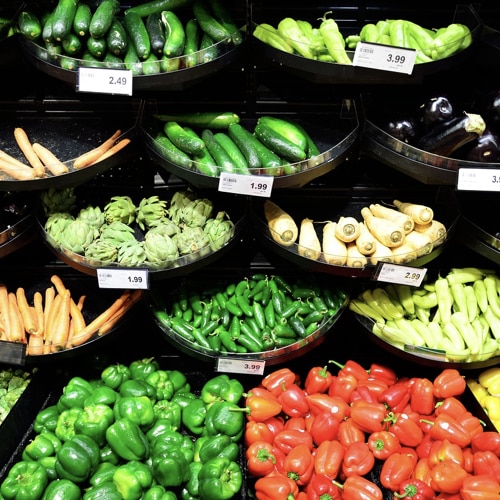The short just reply to the latest trend disrupting the food industry is – of course, it does promote durability and reduces As well as emissions. But, is the only reason? The answer is definitely no.
Your growing awareness regarding plant-based diets and its greater adoption is caused by environmental sustainability, considerations about health and wellness, your shift towards green lifestyle and eating habits, and also dietary restrictions. Veganism today is no longer considered merely a fad but a life style. People are shifting in order to flexitarian, vegan, and in your area sourced food diet plans, simultaneously enabling environment sustainability and minimizing the carbon footprint. According to a study executed by Blue Skyline Corporation and PwC, when 10% of the global meat-consuming population shifts to plant-based diets, it could potentially minimize 176 million tons of carbon dioxide by-products, save 8.6 billion cubic feets of water, and free of charge 38 million hectares involving land every year.
Furthermore, the shift to this diet opens up brand new exciting opportunities regarding vendors focused on providing plant-based proteins such as plant-based beef and plant-based cheese inside the global market.
Study: U.S. Plant-based Various meats Market Industry Perspective and Forecast 2019-2024
The Advent of Plant-Based Protein
Arizton’s most recent report on the plant-based health proteins market is projected to appreciate an absolute growth of around 66% by 2025. The need for plant-based protein has been displaying a steady growth because of growing consumer awareness, as a result of various scientific studies and researches, and recommendations by global health authorities. Recently, government entities bodies in the UAE and also New Zealand have depicted interest in launching across the country initiatives to promote awareness and adoption associated with plant-based nutrition. Several other nations around the world are encouraging vendors and ancillary sectors to introduce plant-based food alternatives for customers.

The ‘Impossible Whopper’, a new plant-based alternative by Mcdonalds made with Impossible Food’s burger patty is one of such options are numerous introduced in the market to market the adoption associated with plant-based diets. From fast-food restaurants to fine eating restaurants, from home improvement stores to the local food markets everyone is stocking way up and offering vegetarian options to tap into the large plant-based protein customers.
Generally speaking, plant-based protein consumption has grown rapidly in produced markets, such as, the usa, the UK, Germany, England, and the Netherlands, while in developing markets such as, China, Japan, Brazil, Mexico, South Africa, along with Australia, the need plant-based market is at an preliminary growth stage.
Verify our latest report on Natural Sugar Substitutes Market Worldwide Outlook and Predict 2020-2025
Rise of Alternative Meats Options
Meat manufacturing is associated with environmental effects and, in particular, techniques emission. Approximately 15% associated with greenhouse gas pollution levels come from livestock generation, of which 40% is due to gound beef and dairy producing. Hence, innovations concerning plant-based alternatives that include soy-based tofu, wheat-based seitan, and also veggie burger meats are being introduced from the global market. The world meat alternative companies are currently comprised of 1% in the global meat industry in 2019. With increasing interest, the global beef alternatives, which include equally plant-based meat and lab-grown various meats alternatives, are expected in order to comprise 10% of the market share by 2029.
Moreover, plant-based diets increase health benefits which help improve cholesterol, reduced blood pressure, eliminate extra sugar, boost the consumption of fibers, and decrease irritation. When some of the world’s most significant meat-producing companies, such as Cargill along with Tyson Foods are investing within R&D for sustainable necessary protein alternatives. Hence proving that there is some advantage to the shift towards ‘fake meat’ options.
Read: Plant-based Beef Market Global Perspective and Forecast 2020-2025
The World of Plant-based Cheeses
Lactose intolerance and the launch of vegan cheeses alternatives opened the joy of plant-based cheese in the international market. The whole marketplace of cheese producers is using plant-based ingredients such as soymilk, almond, and cashew milk to make a similar cheesy product which resembles real dairy cheese in terms of flavoring and texture. Your shift in customer choices to healthy, eco friendly, and high nutrition food items will boost the use of plant-based dairy alternatives in the global market place.
Read our latest report on Plant Proteins Market Global Prospect and Forecast 2020-2025
Are you aware that plant-based cheese or vegan cheese accounted for roughly 6% of the global non-dairy take advantage of market? And civilized world like the US along with the UK are amongst the biggest consumer of cheeses made of soymilk, almond milk, cashew milk, coconut milk, as well as some others. Such large-scale adoption of plant-based cheese is actually disrupting the food sector and enabling foods tech to take the the front seat in a lot of enhancements.
Though sustainability is a key factor encouraging customers to adopt plant-based diets, tastes, texture, and types are also not taking a backseat in this change. Furthermore, the shift is creating a totally new eco-system of locally acquired, eco-friendly, plant-based foods in the global market. This is may also have a significant cascading impact on the other ancillary industries. Going plant-based is not only aiding save the planet yet, opening doors to a brave new world.
For more information about Plant based protein market have a look at this popular web portal.
